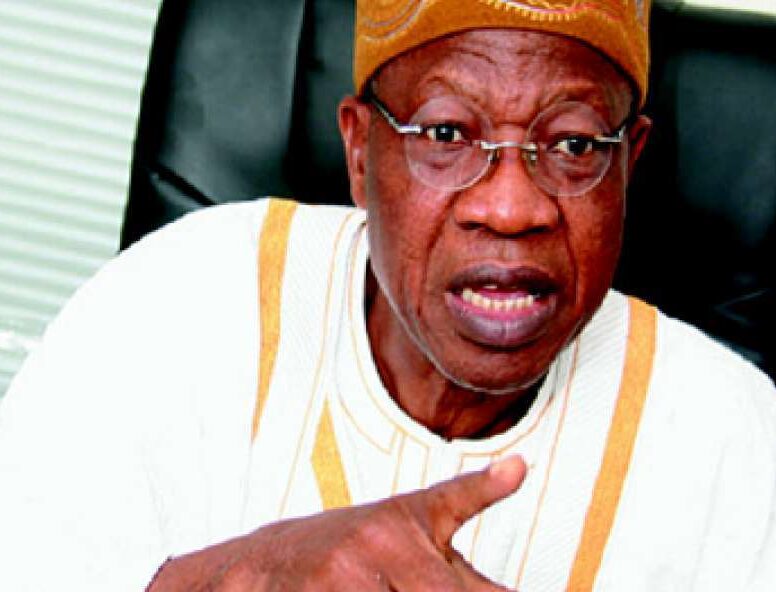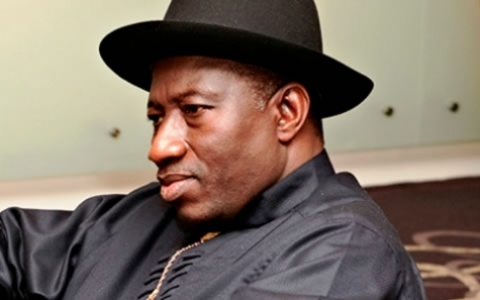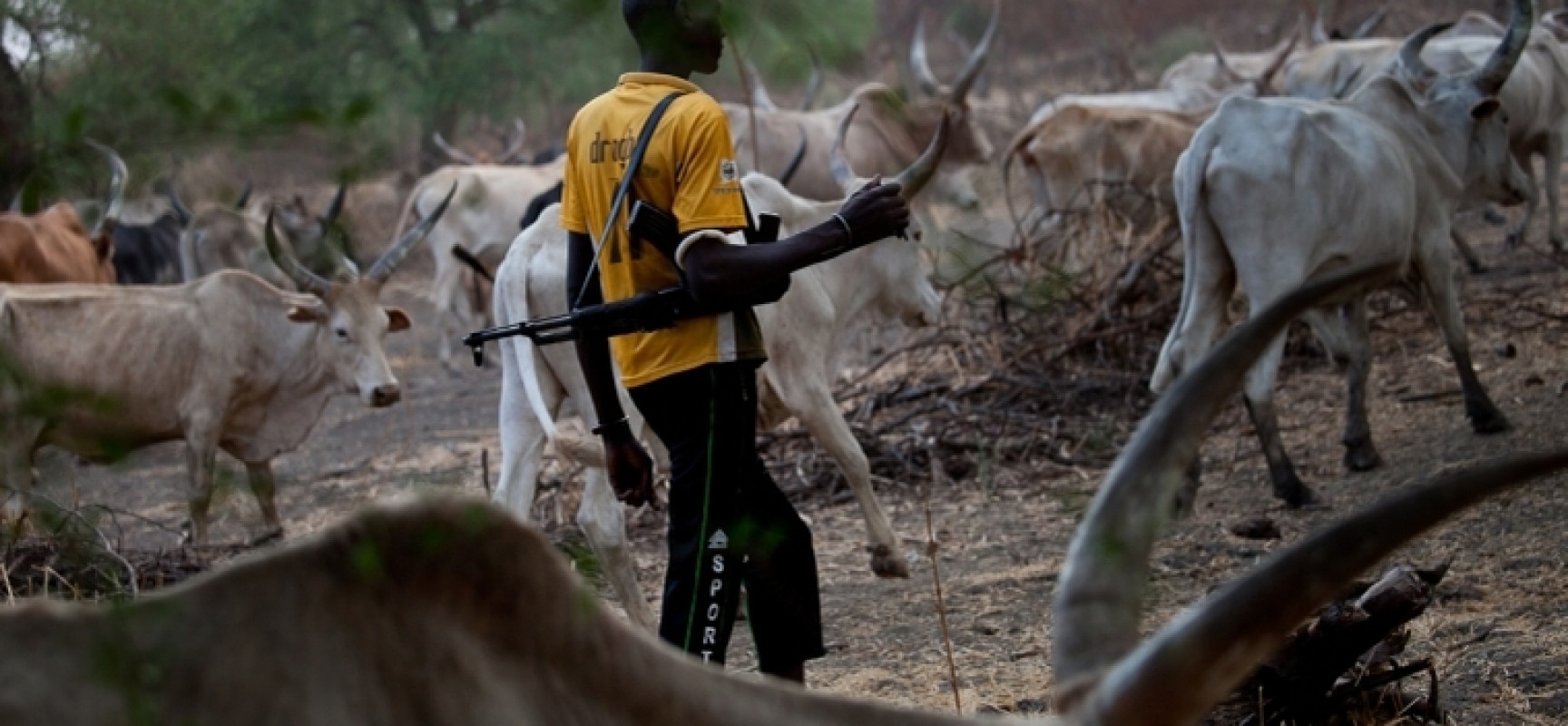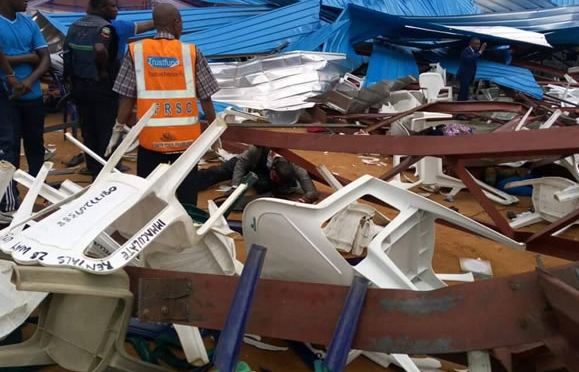Former President Goodluck Jonathan has warned that the unity of Nigeria may be in great jeopardy if the issue of religion is not properly handled.
Jonathan gave the statement in a speech he delivered at the U.S. House Sub Committee on Africa on February 1, 2017.
He added that it is not in the best interest of the U.S. and indeed the international community to ignore Nigeria.
1.The speech is titled, “Challenges of Nigerian Christians and the Niger Delta Question-A Summary.”
Read the full speech below: Challenges of Nigerian Christians and the Niger Delta Question-A Summary A Presentation by Dr. Goodluck Jonathan, Chairman of the Goodluck Jonathan Foundation to the U.S. House Sub Committee on Africa, February 1, 2017 Let me start by thanking Congressman, Christopher H. Smith, Chairman U.S. House Sub-Committee on Africa, Global Health, Global Human Rights and International Organizations for inviting me to share my views on the crisis facing Christians in Nigeria today and the Niger Delta question.
The U.S. Congress is a powerful institution not just for good governance in the U.S. but also for global peace and development. Over the years, the U.S. Congress has shown consistent interest in African affairs and I thank you for this and for showing interest in Nigeria.
Congressman Smith has personally visited troubled spots in Nigeria and especially those geo-political zones that are considered the frontline of ethnic and religious conflicts. He has also visited the Niger Delta.
I sincerely thank him for these efforts. File: Former President Jonathan giving his speech at Oxford In your invitation letter, you highlighted a number of very sensitive issues you wanted me to touch on. I group all these issues under ‘Challenges Facing Nigerian Christians and the Niger Delta Question’.
A full discussion on even one of these issues may take a minimum of two hours, but here, I am expected to be very brief. I will therefore present a bird’s eye view, but when next your committee visits Nigeria, even more detailed presentations will be made by other stake holders.
2. Nigeria and the World
I read a paper presented by Princeton N. Lyman, a former U.S. ambassador to Nigeria, suggesting that Nigeria is no longer strategic to U.S. interests in Africa and the world as it used to be.
Ambassador Lyman may have had valid reasons for such a view point, but I make bold to say that the relationship between the U.S. and Nigeria has come a long way since Prime Minister Abubakar Tafawa Balewa’s State Visit to the U.S. in July of 1961 and that relationship should not only endure, but be built upon.
Nigeria, as a nation, is relevant to the U.S. in my opinion especially when you consider such parameters as: Mineral Resources Economy/Trade Biotic Resources Population/Human Resources, etc Nations such as Nigeria can impact the globe positively when things are handled properly.
They may also affect the world negatively if things go wrong. It is not in the best interest of the U.S. and indeed the international community to ignore Nigeria.
3. Killing of Christians in Nigeria
Your invitation letter profusely highlighted the issues of the killing of Christians in Nigeria, the last major incident being the recent killings in Southern Kaduna in Kaduna state, and I do not need to elaborate on that. The challenge is how do we stop that from recurring. How do we ensure that Christians and Muslims cohabit peacefully in Nigeria and practice their religions freely without discrimination, molestation and killings?
One school of thought believes that these killings reoccur because of impunity. Security and law enforcement bodies unfortunately have a history of failing to apprehend the culprits of previous killings and disturbances and punishing according to the law. Such impunity has emboldened and encouraged persons with such tendencies.
Indeed, though there have been over 10 major incidences of ethnic and religious conflagration in the frontline state of Kaduna since 1979, there has only ever been one incidence where the authorities took action, according to the law, to punish the culprits of the disturbances.
This was in 1992, after the Zangon Kataf riots in which the official death toll was 300. The military administration of General Ibrahim Badamasi Babangida constituted the Civil Disturbances Special Tribunal to try arrested persons and a total of 14 persons were sentenced to death, although the Babangida administration commuted the sentences to five years imprisonment.
Within the period I served as a Vice President and later as President, it became very clear to me that if the issue of religion is not handled properly, the unity of the country would be in great jeopardy. Religious and other ethnic issues were becoming a stumbling block towards societal cohesion and economic development.
I therefore set up a National Conference with the mandate of looking into all the grey areas militating against the peace, progress and development of Nigeria. On the issue of religion, let me quote unedited the position of the 2014 National Conference.
Nigeria has over 350 ethnic nationalities and that: ‘“This multi-ethnicity has been compounded by pronounced religious differences, exploited usually for political considerations by avid political classes in contexts of extreme poverty and very low educational development among the mass of the populace. Whereas Nigeria is supposed to be a secular state,” one nation bound in freedom, peace and unity”, the prevalence of religiosity and its related nepotism at all levels, has effectively undermined the objectivity which secularity would have ordinarily imbued in national politics.”
The Conference further stated that: “In view of the fact that religion plays a vital role in many aspects of our national life especially in the aspect of national security and national unity, it is highly imperative that it be singled out from other fundamental rights and given a special attention via the creation of an Equity Commission whose sole mandate will be to focus on religious rights and their promotion.
This is in line with best global practices as many advanced democracies have special legal and institutional arrangements for some very sensitive aspects of their national life. Examples of such specialized agencies from other countries are presented below: a) In the United Kingdom, despite the existence of the UK Equal Opportunities Commission (UK-EOC), a Commission for Racial Equality (created by the Race Relations Act, 1976) which existed alongside UK-EOC for many years.
This was done because at the time, issues of racial discrimination were very sensitive and crucial that it was thought necessary to create a special commission for it. b) In the United States, despite the existence of the US State Department Bureau of Democracy, Human Rights and Labor, it has other special human rights enforcement agencies created to promote specific rights. One of such agencies is the Equal Employment Opportunity Commission (EEOC) which is a federal law enforcement agency that enforces laws against workplace discrimination.
The EEOC investigates discrimination complaints based on an individual’s race, color, national origin, religion, sex, age, disability, genetic information, and retaliation for reporting, participating in, and/or opposing a discriminatory practice. c) Canada has a similar arrangement to that of the United States.
The Canadian Human Rights Act has long prohibited discrimination on the basis of gender,COM FINAL CONFERENCE REPORT PAGE 433 race, ethnicity, and certain other grounds. In 1986, the Canadian government passed the Employment Equity Act which was meant to protect certain restricted vulnerable categories of persons.
The Canadian Human Rights Act continues to be in force alongside the Employment Equity Act. d) In Australia, there are 3 different commissions addressing the issues of human rights, namely: Human Rights Commission, Anti-Discrimination Commission and Equal Opportunities Commission” I totally agreed with the 2014 National Conference on the need to establish the Religious Equity Commission that will have powers to arrest and prosecute those who contravene the law. If, as a nation, we do not kill religious persecution and extremism, then religious persecution and extremism will kill Nigeria.
The potential danger associated with the level of conflicts going on across the country is so glaring that no sane mind can ignore. Even before I set up the National Conference in 2014, my government took certain initiatives to end impunity and reorient the minds of Nigerians. First was education.
I established twelve conventional Federal Universities and two specialized universities. Nine of the twelve Federal Universities were located in those states in Northern Nigeria that previously did not have any Federal University. The Specialized Police University was located in Kano state, also in the North, bringing the total number of universities I established in the North of Nigeria to ten.
The Specialized Maritime University was located in the Niger Delta. In addition to these, I also established 165 Almajiri elementary and high schools in each of the nineteen states of Northern Nigeria to combine Islamic education with Western education. In the area of law enforcement, it was quite challenging, but we were determined.
When the Boko Haram Islamic terrorists bombed St. Theresa’s Catholic Church, Madalla, in Niger state of Nigeria on Christmas Day of 2011, I physically visited the scene of the bombing at which 44 people died on Saturday the 31st of December 2011 and I promised Nigerians that those responsible for that heinous act would be brought to book.
That promise was fulfilled on the 20th of December 2013 when Kabiru Umar, aka Kabiru Sokoto, was sentenced to life imprisonment after my administration investigated that crime, identified him as the mastermind, arrested him and diligently prosecuted him and some of his associates.
Might I add that this was the first and only successful prosecution of a crime of deadly terrorism against a religious place of worship inspired by religious extremism since Nigeria’s return to civil rule in 1999.
Before then, my administration had also diligently carried out the first successful prosecution of terrorists of the Islamic extremist group, Boko Haram, for another terror attack, but this time not in a place of worship but on the offices of the Independent National Electoral Commission also in Madalla, Niger state, an act which led to the deaths of sixteen persons on April 8th, 2011.
We were in the process of prosecuting Aminu Ogwuche, the mastermind of the April 14, 2014 Nyanya bombing in Nasarawa state which killed 75 people but unfortunately that prosecution was ongoing as at the time I left office in 2015.
But the point I want to emphasize by citing these incidences is that my administration had the political will to halt impunity in Nigeria and that is why killings due to religious extremism was localized to the Northeast with occasional killings in other zones of the North.
And even in the Northeast, we had rolled back the Islamic terrorist sect, Boko Haram, by the end of the first quarter of 2015 after we were able to get weapons to arm our military. The killings did not spread to the mainly Christian south and I believe that the fight back against impunity by my administration was the main reason for this.
Of course, there were other reasons for this. For instance, through my personal reach out to the then President of the Christian Association of Nigeria, Pastor Ayo Oritsejafor, I was able to persuade the Body of Christ in Nigeria not to engage in any retaliation or reprisal killings. My job was made easier in this regards when the Christian Association of Nigeria saw a genuine desire on my part to bring religious extremists to book.
Using the same approach with the head of the Muslim Ummah in Nigeria, His Eminence, the Sultan of Sokoto, I was able to get the mainstream of the Islamic faith to publicly condemn Islamic extremism in Nigeria. This was important to show that a clampdown on Islamic extremism was and is not a clampdown on Islam.
Going a step further, I worked through a body known as the Nigeria Inter-Religious Council (NIREC) to bring Christian and Muslim leaders together so they could talk to each other not at each other.
To summarize on the issue of ethnic and religious conflicts, I recommend the establishment of the Religious Equity Commission, enforcement of our laws without fear or favor and maximum cooperation by all Nigerians especially our revered religious leaders and clerics.
4. The Niger Delta Question
The issue of the Niger Delta is an issue of exploitation of natural resources, economy and development. The complaints and restiveness is not unique to the Niger Delta of Nigeria alone. In most African nations where resources are domiciled in minority regions and the control of such resources are in the hands of majority regions, such agitations are commonplace.
The people in these regions feel that though they suffer from the environmental hazards of the exploitation of the God given resources, they do not commensurately benefit from the exploitation of these resources. In the Niger Delta, these agitations predate Nigeria’s existence in 1914.
Oil palm produce (palm oil and kernel) were major raw materials that fed the growth of the Industrial Revolution in Europe, and they largely came from the Niger Delta. Various tribal kings and chiefs such as King Jaja of Opobo and Nana Olomu, resisted British exploitation of these resources and were both arrested, deposed and exiled to the West Indies (King Jaja) and the Gold Coast (Nana) by the British Imperial Government as punishment for their agitations.
Let me add that the punitive measures against these kings did not end the agitations. With the discovery of petroleum, in the Niger Delta, similar agitations surfaced. On February 23, 1966, these agitations culminated in the declaration of the first secessionist state in post independent Nigeria, the Niger Delta Republic, proclaimed by Isaac Jasper Adaka Boro. His twelve day revolution was crushed by the Federal Government.
It is instructive to note that Isaac Boro declared the Republic of the Niger Delta a full year and three months before May, 1967 when then Colonel Chukwuemeka Odumegwu Ojukwu declared the secession of the Eastern Region to form the Republic of Biafra leading to the thirty month civil war. From the end of the civil war to date the Federal Government has come up with many interventionist initiatives to pacify the Niger Delta.
I was a pioneer staff and worked as an Assistant Director of Environmental Protection at one of these early interventionist agencies called the Oil Mineral Producing Areas Development Commission (OMPADEC), set up by the military administration of General Ibrahim Badamasi Babangida. With the advent of democracy in 1999, then President Olusegun Obasanjo established the present body, the Niger Delta Development Commission (NDDC).
The greatest stumbling block of these interventionist agencies was lack of continuity, resulting from an over politicization of projects as each successive management awarded new contracts rather than continue with those awarded by their predecessors and as such, the Niger Delta is littered with many abandoned projects with very few completed projects to show for the huge monies spent. During the Obasanjo era, the Federal Government, in line with our constitution and revenue laws, set aside 13% of oil revenues to be paid as derivation funds to oil producing states and shared on the basis of proportion of oil they produce.
As a person from the Niger Delta, I can say that the 13% derivation has benefitted Niger Delta states and their people more than the interventionist agencies. For example, those who knew Akwa Ibom state before the 13% derivation become law will agree that the derivation fund has changed the face of that state making it almost overnight one of the most developed states in Nigeria.
The same is true with other oil producing states though with varying degrees of development. From the foregoing, the only option that will solve the agitation in the Niger Delta is true and Fiscal Federalism as practiced in the United States from whom we copied the Presidential model of government. States should be allowed to exploit their natural resources as they deem fit and pay adequate taxes to the Federal Government. This is also the position of the 2014 National Conference.
The Conference strongly recommended the adoption of Fiscal Federalism as the only panacea to these agitations and other challenges.
5.The Role of the Goodluck Jonathan Foundation
Resolving both the religious crises and the Niger Delta question requires a new legal framework, thus the Federal Government and the National Assembly have major roles to play.
The Goodluck Jonathan Foundation working with Elder statesmen and Civil Society groups can, through dialogue and advocacy, encourage religious leaders, traditional rulers, youth groups and women groups to participate in the formulation of a new legal framework. They will also be impressed upon to abide by these laws when put in place. Without a new legal framework, successes by any advocacy group will at best be transient, it will not endure. Also, the military crackdown in the Niger Delta will not end the agitation there.
It will have the opposite effect of provoking the youths which will cause them to seek to acquire sophisticated weapons to defend themselves and their communities.
This may in turn lead to secessionist movements and the reincarnation of the Isaac Jasper Adaka Boro led revolution and the Biafran Civil War. The Federal Government and the international community must work to avoid this.
6. Global Terror and Boko Haram in Nigeria
The Boko Haram Islamic terrorist sect has been classified as the most deadly terror group in the world by the Global Terrorism Index.
Herdsmen operating in and around Nigeria are listed as the fourth most deadly terror group. However, I do not intend to discuss global terror because it is a subject well known to all and the U.S. government has been working hard with various governments to address these issues. My belief is that the day the U.S. government and the Russian government decide to work together, that will surely mark the beginning of the end of global terror.
7 Conclusion
In my capacity as head of the Goodluck Jonathan Foundation, I visited former Nigerian leaders to call for unity of purpose to fend off some of these challenges I have listed above. And finally today I am here, calling on this august body and the new American administration of President Donald J Trump, of whom we are very confident, to please work with the government and people of Nigeria by way of capacity building and intelligence gathering and sharing and indeed in any way possible to bring an end to religious extremism in Nigeria.
Mr. Chairman, distinguished ladies and gentlemen, I thank you for giving me the opportunity to share my ideas on these sensitive subject with you.



